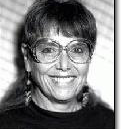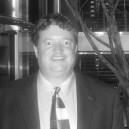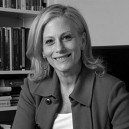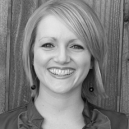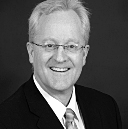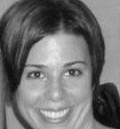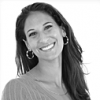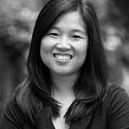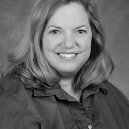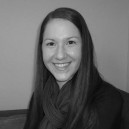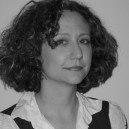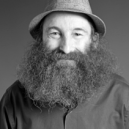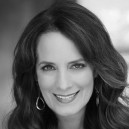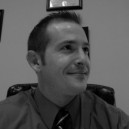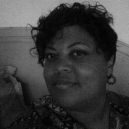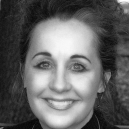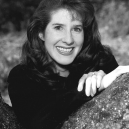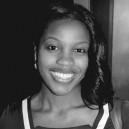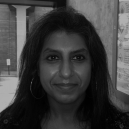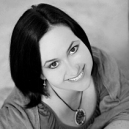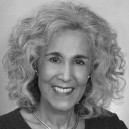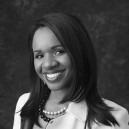Marcia Hanlon
Career Center Counselor
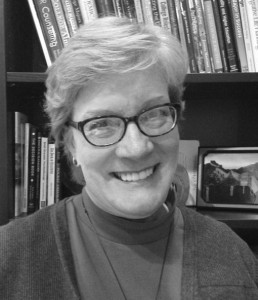 Many social workers are drawn to the profession from a young age and others have very dramatic experiences in their lives that lead them into the social work industry. This is especially true if those experiences involved a social worker who helped them through those difficult times. This inspiration, combined with a great deal of hard work and determination, often makes the best social workers.
Many social workers are drawn to the profession from a young age and others have very dramatic experiences in their lives that lead them into the social work industry. This is especially true if those experiences involved a social worker who helped them through those difficult times. This inspiration, combined with a great deal of hard work and determination, often makes the best social workers.
Marcia Hanlon is exactly this type of social worker; after a traumatic experience in her life, she had the help of a wonderful social worker. This made her realize that she wanted to help people as well.
Tell us about your education at Loyola University of Chicago. How long did it take to become a licensed social worker?
I enrolled in the 2-year Masters in Social Work program at Loyola U of Chicago. I went full-time for the 2 years, including a 2-day-a-week internship (or “field placement”) the first year and a 3-day-a-week internship the second year. Although I took several psychology and sociology classes as an undergrad, I did not go through an undergrad social work program, so that is why I had to do the full two-year Masters program. (For most schools, if you have a Bachelors degree in Social Work, you can get “advanced standing” and usually complete the Masters in 1 year, full-time).
After completing the requirements to earn my degree, I had to complete 3,000 hours of supervised clinical work and pass a state licensing exam to get licensed in the State of Illinois. My supervisor at the college where I was working as a psychotherapist at the time was not a social worker, so I had to hire a licensed clinical social worker to sign off on my hours in order to complete the state requirement.
How did you first become interested in counseling? How did you end up as a college counselor? What caused you to select that niche versus other avenues?
My undergraduate major was self-designed: “Sociology of Sports / Journalism.” I worked in the Sports Information Office of the Athletic Association at the University of Illinois my senior year in college, then in Sports Information at Brown University, then on the sports staff of the Chicago Tribune newspaper. It was in my second year at the Tribune that I was in a car accident with my sister.
She died as a result of her injuries. I was devastated. But I was given excellent help from a therapist which was so powerful an experience that I was inspired to help others in the same way. I began doing informational interviews with various people in counseling roles and from their collective wisdom, decided to pursue a social work education. As I began the classes and thought about the type of work I was interested in, I realized that I enjoyed the young adult age group and I could relate to college students because my own path through college was quite a winding journey and not at all typical of the usual way to get through college. I never wanted to work with any other population and only on a college campus.
During what part of your education did you have to make a decision to go full steam ahead toward counseling?
When I got accepted to grad school, that was it! Counseling was what I was going to do. I never considered the profession prior to college or even while in college. It wasn’t until my own life circumstances brought me to a therapist that I even realized what the profession was all about.
Then I did a lot of soul-searching, researching college programs and talking with professionals in the field before I made the decision on a graduate program.
What was the hardest part of your education process? Did you have any setbacks, challenges, or epiphanies along the way?
I found my field placements each year to be the most enriching experiences by far, but also the places of my greatest challenges. My first year placement was at a Chicago inner-city hospital that served a mostly low-income and ethnically diverse population.
I learned so much from the patients there, about their lives, their various cultures and how the welfare system works. My biggest problem with the placement, though, was all the sick people! By nature, I am not good around physical illness and from my life experience, I saw hospitals as places to go to die. My supervisor, on the other hand, saw hospitals as places of healing. We just had different perspectives.
The problem for me was that all of the patients I was assigned to were dying or had permanent disabilities or diseases – cancer, sickle cell anemia, a gunshot wound causing paralysis, a teen hit by a train and on life support. Having had no previous experience in counseling or around serious illness, I was overwhelmed by the lack of hope. I believe I was fine with the patients – attentive, compassionate, helpful – but when I left the hospital I was hit with a mild case of depression each day.
I expressed my concerns to my supervisor who coached me through the work with these patients, but at the same time, she eased me into the behavioral health unit, working with psychiatric patients. That was a better fit. I was more comfortable with the psych patients even though, ironically, their diagnoses, too, were chronic conditions.
Tell us about your work at North Central College and Aurora University. You operate a consultancy now. How did you decide to take the leap to work for yourself? What are some of the greatest accomplishments thus far?
I landed my first job on a college campus with an informational interview. I researched college campuses near where I live and began scheduling appointments with the Counseling Directors. At North Central College in Naperville, the director and I hit it off right away. A few months later when a job opened up, she hired me.
Most of my work there was one-on-one therapy with various students. Some of the issues were school-related, but largely were problems with relationships – romantic, family, roommates, friends – or issues from their past. It was mostly short-term (1-8 sessions) though I did see some students for a semester or an academic year. The director handled the emergency calls and any hospitalizations, which at that time were pretty rare. Scheduling appointments with college students tends to be easy because of the flexibility in their schedules. But in college counseling we always had to be mindful of the vacation breaks so that we didn’t open up a very sensitive topic just before a student was leaving campus for an extended period of time. Those built-in gaps in our meetings guided a lot of what we could accomplish in sessions. On a personal level, it provided regular breaks for me to get refreshed. Part of the job, too, was to provide psychoeducational programs on mental health issues in the residence halls or in classes, provide Resident Assistants’ training, and serve on faculty-staff committees. My contact with a biology professor who often would refer students to me, led to him asking me to join him team-teaching a course on Human Sexuality. He covered the biology and I covered the psychosocial aspects of sexuality. During the 12 years I was at North Central, there were many changes in my personal life and after my father died, I had to devote more time to family needs so I resigned from the college. After another year, things were on track and I opened a private practice. My primary work came from a contract working as a “life-work planner” for union employees of AT&T and Lucent Technologies. This opportunity came through a former colleague at North Central who was now overseeing this program. At the same time, I completed an online certificate program from UCLA on Independent College Admissions Counseling, which led to work with high school seniors. A few years into the private practice, I got a call from another former North Central colleague who was now a Vice President at Aurora University. He had a temporary opening for the Director of Counseling on campus and asked if I’d be interested. They were willing to take me on part-time, so I took the position. After a couple of months, the previous director notified the university that he would not be returning, so they offered me the position. I enjoyed the camaraderie of a community and I love the energy of a college campus, so I said yes. Some years had gone by and the nature of the students as well as the nature of college counseling had changed. While the basic job responsibilities stayed pretty much the same – one-on-one therapy, psychoeducational programming, and consultation with faculty, administrators and parents – the level of the problems and stress presented by students had increased. There was much more crisis intervention to the job. The numbers of students coming to campus already on psychotropic drugs and/or having already been hospitalized in the past increased dramatically, as well as the number who had to be hospitalized while in college.
This has been a nationwide trend – not just what I was experiencing – according to my colleagues on the American College Counseling Association (ACCA) listserv. From my early years at North Central I had seen a huge shift in college counseling responsibilities from helping students solve personal problems that were getting in the way of progress in their studies to a much greater focus on serious mental health concerns like suicidal ideation, eating disorders, mood disorders, self-injury and other problems. After working in this constant crisis type of environment for almost eight years, I felt the need (for my own self-care and for my professional development) to move out of the fast lane, so to speak, and focus my attentions on what I loved about college counseling and what I was very successful doing. That is in helping students define and achieve personal, academic and career goals. I’m now working part-time with a nonprofit group and am in talks with two other groups to provide services for low-income and minority high school students who will be the first in their families to attend college. My approach is a blend of psychotherapy and college/career counseling. We drill down to build self-knowledge and confidence as well as learn how the higher education system works. The students explore careers and establish an individualized plan toward their goals.
What aspects of your education and training have been most crucial to your success? Give us some examples of the day to day process as a counselor and business owner.
Life experience is a huge asset in the nature of the work I have chosen to do. Not in the sense of saying, “This is what I did, so this is what you should do,” which is counter to how therapy works. But having the perspective of the practical things I’ve learned by living in this world and having the breadth of experiences I’ve learned about through my clients adds much depth to what I can offer clients today. Also my own therapy experience with a very solid, accomplished practitioner provided tremendous insight into how people’s minds work and how to make a difference.
Any final words for the future counselors who are reading this?
I have always worked somewhat on the fringes of traditional social work, and that’s OK. I think it suits my personality. Within the professional organization of the National Association of Social Workers (NASW), there isn’t a practice group for college mental health counselors, so I’ve seldom attended social work conferences or read the journals. I’ve had to seek out camaraderie and professional development through the counseling professions like ACCA (mentioned previously) and the Association for University and College Counseling Center Directors (AUCCCD), though these organizations are heavily populated with psychologists and counselors.
Working across disciplines of mental health professions can work well or be a challenge, depending on the personalities of the practitioners. Also, working in a professional setting (like a university) that is not primarily about mental health sometimes requires assertiveness to explain or defend how your work contributes to the overall mission of the organization.
Drawing from my experiences, the most important lessons I can give are these:
Always remain curious. There’s much to be learned every day from inside yourself and from the people around you, including your clients.
Do your research so you are sure of what you are doing before you enter graduate school.
Informational interviews are extremely valuable for getting your “foot in the door” and if nothing else you can learn a lot from the people you interview to store in your knowledge bank for future client contact.
Never burn bridges. You never know when someone from your past can give you a hand up in your next career move.





